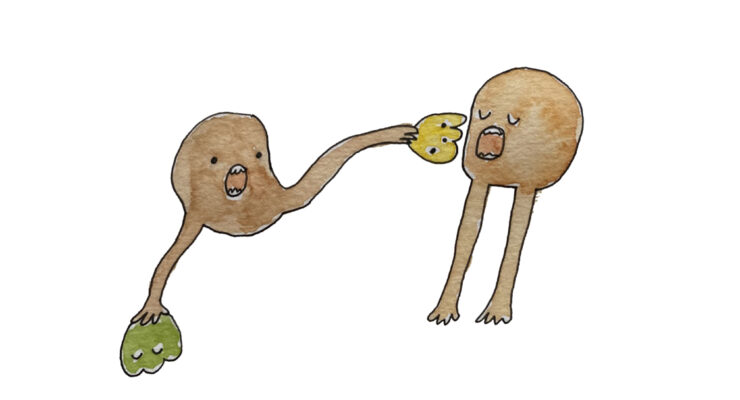“The field of food and design is where opportunity and challenge meet.”
Sophie Yotova is a certified Eating Psychology Coach and that has dedicated her life to devising a sustainable and flexible strategy for people to cultivate long-lasting and adaptable healthy eating habits. She does this partly through her platform Foodie Boulevard – a disruptive organization that explores food as an interactive and customizable long-term strategy for individual health promotion. Her main focus as a correspondent for the DIFD will be to explore what shapes the role of food in our society and what does or doesn’t impact our habits, beliefs, choices, and perceptions when it comes to the role of food in our lives. And what we can do to move forward, make better choices, and live a more harmonious, balanced, and sustainable lifestyle both when it comes to food and beyond.
What fascinates you about food?
Food brings us together – that’s a given and has been so for millennia. Food is one of the few things that are universally present in everyone’s life from the very beginning until the very end. No matter where we’re from, what our particular habits or preferences are, how much money we can afford to spend on food and so on – food brings us together.
We can all relate to the importance of food in our lives. It’s a language we all understand. Everyone experiences hunger in the same way and knows it’s not a sensation that you ever want to experience for extended periods. However, over the past decades the essence and the role of food in our lives have transformed dramatically and it is no longer just a survival tool and a fuel for our bodies.
Today food has a central role in so many different contexts – it’s in the core of a massively profitable global industry. It is one of the most powerful epigenetic factors that can dramatically impact our long-term health and wellbeing. And at the same time, it’s one of the ways we can unintentionally harm ourselves and the ones we love beyond repair. Food can be an instrument for stimulating kids’ curiosity and for unleashing their creativity. It can be an unlikely mechanism for tackling eating disorders, and a way for artists to translate their inspiration into the most intimate type of art. And much, much more!
But beyond all that, food is a metric. It shows how our society as a whole is maturing in terms of our readiness to accept and admit that food – once perceived as a trivial topic, has a much deeper meaning, much broader functions, and much wider impact today than ever before.
The technological innovations, the revolutionary inventions, the numerous global food crises, and the myriads of ethical considerations in the realm of food are all subjects that deserve enormous attention and consideration, but all of that does not exist in a vacuum. It’s just a manifestation. It is a consequence. It is an illustration of our collective beliefs, needs, behaviors, choices, convictions, priorities, fundamental ideologies, and visions for the future.
How would you describe the field of food and design?
To me, the field of food and design is where opportunity and challenge meet.
On one hand, the global fast food industry has illustrated that by bringing industrial and technological design into the context of food, we can produce more food than we can eat, we can make more money than we need, and we can make people sick in ways that are completely avoidable.
On the other hand, design has the potential to enable the most creative minds of our time come up with potential solutions to famine, find ways to put lab-grown meat and insect protein on our tables, come up with more sustainable agricultural practices, and produce large quantities of environmentally friendly nutrient-dense foods that are affordable for the average person in any location globally.
How we utilize design and what end we use it to is a question of our moral compass and of our long-term goals and visions, no matter how naïve and idealistic they may appear at first glance.








